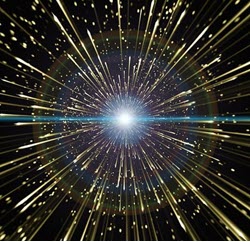In a world full of mysteries and wonders, some events stand out as truly exceptional and mind-boggling. The incident that is believed to have kickstarted the universe— the Big Bang—is a topic of fascination and intrigue among scientists, philosophers, and enthusiasts alike. The idea that the entirety of our universe originated from a singular point of immense energy and density is both awe-inspiring and thought-provoking.
The concept of the Big Bang originated in the early 20th century when the Belgian astronomer and physicist, Georges Lemaître, proposed the theory of an expanding universe. He theorized that if the universe is expanding today, then it must have been denser and hotter in the past. This led to the hypothesis that the universe originated from a state of incredibly high energy and density, now known as the Big Bang.
As scientific understanding and technology advanced, evidence supporting the Big Bang theory continued to accumulate. One of the most compelling pieces of evidence is the cosmic microwave background radiation, which is a faint glow left over from the early stages of the universe. The discovery of this radiation in the 1960s provided strong support for the idea that the universe began in a hot and dense state and has been expanding ever since.
The implications of the Big Bang theory are profound and far-reaching. Not only does it provide an explanation for the origin and evolution of the universe, but it also raises fundamental questions about the nature of reality and existence. The idea that our entire universe, with its vast galaxies, stars, and planets, originated from a single point is nothing short of mind-blowing.
Despite its widespread acceptance in the scientific community, the Big Bang theory is not without its detractors and challenges. Some alternative theories propose different models of the universe’s origin and evolution, challenging the traditional Big Bang narrative. However, the vast majority of scientific evidence continues to support the idea that the universe began with a bang.
In conclusion, the Big Bang theory stands as one of the most significant and captivating concepts in modern science. It represents a cornerstone in our understanding of the cosmos and serves as a testament to the power of human curiosity and ingenuity. While the precise details of the Big Bang remain shrouded in mystery, its implications continue to inspire awe and wonder in those who ponder the origins of the universe.
